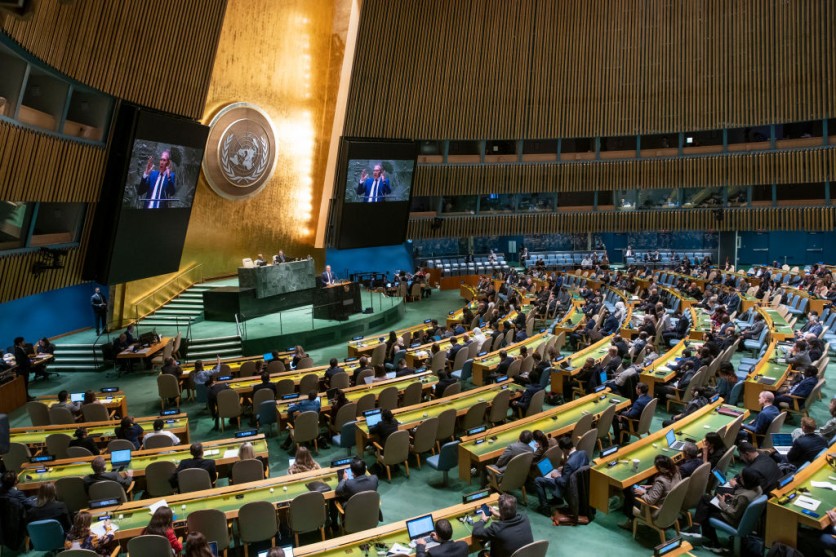United Nations Secretary-General António Guterres came up with a key step toward tackling international artificial intelligence (AI) governance on Thursday by forming a group of 39 consultants to deliberate on these vital concerns.
This consulting panel includes a variety of personalities, such as notable academics from the US, Russia, and Japan, technological industry leaders, and foreign government representatives.
Notable individuals from Microsoft, OpenAI, Sony, and other tech behemoths are included on the list, underscoring the knowledge and clout contributed. Hiroaki Kitano from Sony, Mira Murati from OpenAI, and Natasha Crampton from Microsoft, who oversee responsible AI, are ready to speak on behalf of their respective companies.
With members from six continents, this multi-faceted AI advisory group seeks to improve AI governance worldwide. The breadth of backgrounds includes prominent AI specialist Vilas Dhar from the United States, eminent Chinese professor Yi Zeng, and Egyptian lawyer Mohamed Farahat.

Working Together to Develop AI 'for Good'
Guterres shared his thoughts on the potential for AI to revolutionize society and the potential drawbacks that it may have."The transformative potential of AI for good is difficult even to grasp. And without entering into a host of doomsday scenarios, it is already clear that the malicious use of AI could undermine trust in institutions, weaken social cohesion and threaten democracy itself," he said, as quoted by Reuters.
The formation of the UN AI advisory group coincides with a rise in interest in AI throughout the world, as tech firms such as OpenAI are introducing innovative technology. Consequently, politicians and tech experts have expressed apprehension about the possible hazards associated with AI and have advocated for global collaboration.
UK Prime Minister Warns Regulating AI Should Not Be Rushed
In a similar development, United Kingdom Prime Minister Rishi Sunak voiced his reservations about rushing AI regulations. Although he acknowledged the potential hazards associated with AI technology, he issued a warning against enacting regulations too quickly, stressing the need to thoroughly understand the technology before placing any limitations.
Rishi Sunak listed other AI threats, including the ease of manufacturing chemical or biological weapons, terrorist groups using AI for fear-mongering, and hackers using AI for assaults and fraud. He emphasized that governments, not tech firms, should bear the primary responsibility for mitigating the hazards associated with AI.
According to AP News, the British Prime Minister stated, "Only governments can properly assess the risks to national security. And only nation-states have the power and legitimacy to keep their people safe." He emphasized that, due to the complex and ever-evolving nature of AI technology, authorities must "not to rush to regulate" AI and should think deeply before implementing any regulatory actions.
On Nov. 1 and 2, international leaders and tech companies will meet in the UK for the inaugural AI Safety Summit to explore AI's rising impact.
Related Article : OpenAI's New 'Preparedness' Team Focuses on Countering 'Catastrophic' AI Risks, 'Human Extinction'

![Apple Watch Series 10 [GPS 42mm]](https://d.techtimes.com/en/full/453899/apple-watch-series-10-gps-42mm.jpg?w=184&h=103&f=9fb3c2ea2db928c663d1d2eadbcb3e52)



